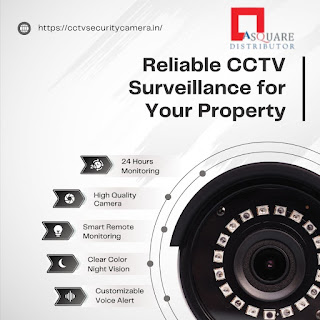CCTV vs. Smart Home Security Systems: Which Is Right for You?
Visit now : CCTV camera shop in Kochi
In an era where security is paramount, homeowners are constantly seeking ways to fortify their properties against potential threats. Traditional Closed-Circuit Television (CCTV) systems have long been the go-to solution for surveillance. However, the rise of smart home technology has introduced a new contender: smart home security systems. So, which option is the best fit for your needs? Let’s delve into the features, benefits, and considerations of each to help you make an informed decision.
CCTV Systems:
1. Proven Track Record: CCTV systems have a long history of effectiveness in deterring crime and providing evidence in legal proceedings. They are tried and tested solutions trusted by many homeowners and businesses alike.
2. Continuous Monitoring: With CCTV, you have constant surveillance of your property. This can provide peace of mind for homeowners, especially those with larger properties or in high-crime areas.
3. Cost-Effective: Traditional CCTV systems can be more affordable upfront compared to smart home security systems, especially for basic setups.
4. Professional Installation: Installing CCTV systems often requires professional assistance for optimal placement and wiring, which can add to the initial cost but ensures proper functioning.
Smart Home Security Systems:
1. Remote Access and Control: One of the most significant advantages of smart home security systems is the ability to monitor and control your security remotely via smartphone apps. This allows for real-time alerts and the flexibility to manage your system from anywhere.
2. Integration with Other Smart Devices: Smart home security systems often integrate seamlessly with other smart devices in your home, such as smart locks, lights, and thermostats, offering a comprehensive home automation solution.
3. Customization and Scalability: Smart home security systems typically offer more customization options, allowing you to tailor your security setup to your specific needs. They are also easily scalable, allowing you to add more devices or upgrade as needed.
4. DIY Installation: Many smart home security systems are designed for easy do-it-yourself installation, saving you money on professional installation fees.
Considerations for Choosing:
1. Budget: Consider your budget and the long-term costs associated with both options, including installation, maintenance, and monitoring fees.
2. Desired Features: Determine which features are most important to you. If remote access and integration with other smart devices are priorities, a smart home security system may be the better choice.
3. Property Size and Layout: The size and layout of your property can influence your decision. For larger properties or areas with multiple entry points, a CCTV system with multiple cameras may be more suitable.
4. Technical Proficiency: Assess your comfort level with technology and whether you prefer a more straightforward setup (CCTV) or are willing to invest time in learning and setting up a smart home security system.
Ultimately, both CCTV and smart home security systems offer effective ways to enhance the security of your home. The right choice depends on your specific requirements, preferences, and budget. Take the time to research and evaluate your options thoroughly to ensure you make the best decision for your home security needs.
.jpg)



Comments
Post a Comment